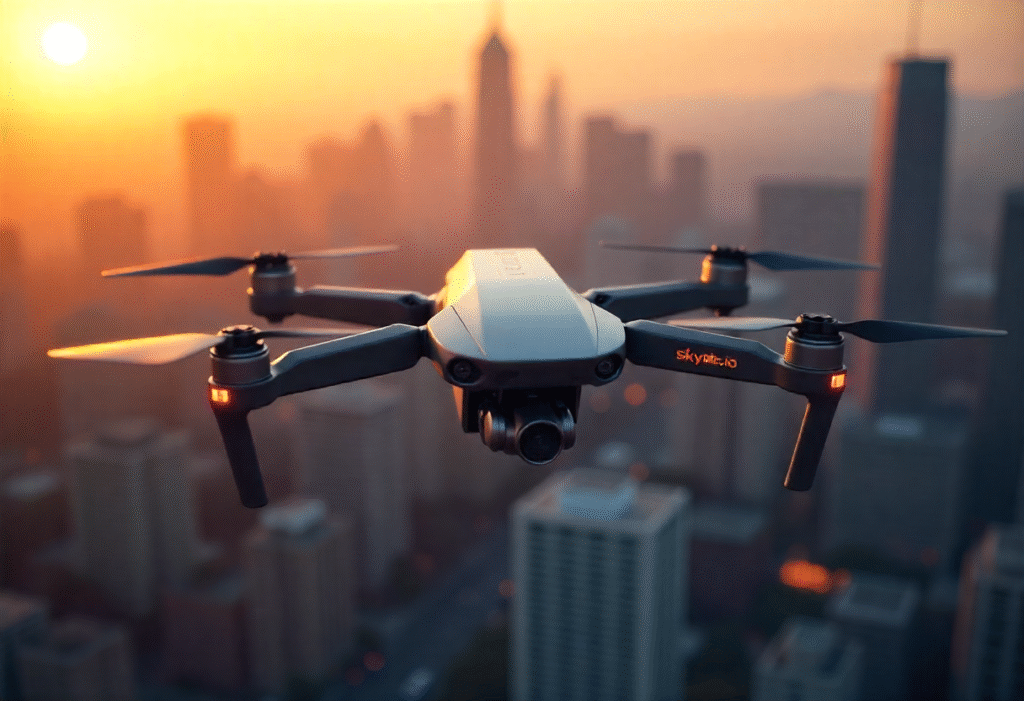In recent years, Skydio valuation has become one of the most discussed topics in the drone industry. Known for its cutting-edge autonomous drones, Skydio has not only secured massive funding rounds but also positioned itself as America’s leading drone manufacturer. From a Silicon Valley startup to a billion-dollar defense and enterprise powerhouse, Skydio’s journey is a fascinating study in innovation, strategy, and market timing. Understanding its valuation story provides insights into how modern tech companies grow in competitive, high-stakes industries.
Skydio’s valuation reflects the confidence of investors, government contracts, and technological superiority. The company first achieved unicorn status in 2021 with a valuation of $1 billion after its Series D funding round. By 2023, it soared to $2.2 billion following a successful $230 million Series E raise. Reports in 2025 now place its valuation at around $2.5 billion, supported by more than $740 million in total funding. This meteoric rise highlights both the strong demand for autonomous drones and Skydio’s strategic pivot to defense and enterprise markets.
The Funding Journey Behind Skydio Valuation
The valuation milestones were made possible through multiple funding rounds backed by major investors. Andreessen Horowitz, Linse Capital, and IVP have played pivotal roles in fueling Skydio’s growth. Each round not only injected capital but also reinforced market confidence in the company’s technology and future prospects. Series D pushed Skydio into unicorn territory, while Series E expanded manufacturing capabilities and supported U.S. government contracts. The extension funding in 2024 added $170 million more, securing resources for global expansion.
The Technology Driving Skydio Valuation
One of the most compelling factors behind Skydio valuation is its autonomous flight technology. Unlike competitors that rely heavily on GPS or manual control, Skydio’s drones are powered by advanced AI vision systems. These systems allow drones to sense obstacles, map environments in real time, and navigate autonomously even in complex terrains. This innovation has not only attracted defense and law enforcement agencies but also enterprises needing reliable aerial inspection solutions.
Strategic Pivot and Its Impact on Skydio Valuation
Initially known for consumer drones, Skydio made a bold decision in 2023 to exit the consumer market and focus on defense, enterprise, and public safety. This pivot significantly boosted its valuation as it aligned with government priorities and industrial demand. Contracts with the U.S. Department of Defense and growing adoption in infrastructure inspection, firefighting, and border security reinforced Skydio’s market relevance. This repositioning turned Skydio from a niche consumer product company into a trusted national security partner.
U.S. Policy Tailwinds and Market Positioning
Another reason Skydio valuation surged is the shift in U.S. policy against foreign-made drones, particularly Chinese manufacturer DJI. Security concerns over data handling created opportunities for domestic alternatives. Skydio, being a U.S.-based company, was perfectly positioned to benefit from these regulations. With increasing government contracts and partnerships, Skydio has cemented its role as a strategic technology provider for national interests.
Skydio Valuation Compared to Competitors
Globally, Skydio’s valuation places it among the top drone manufacturers, though still trailing DJI in terms of overall market share. DJI remains dominant in consumer drones, but Skydio’s enterprise and defense orientation gives it a unique edge. European companies like Parrot and Israeli firms specializing in military drones are also strong players. However, few match Skydio’s combination of AI-powered autonomy and U.S. government support, which makes its valuation stand out in the global market.
The Future of Skydio Valuation
Looking ahead, Skydio valuation is expected to continue growing as defense spending on unmanned aerial systems accelerates. With AI technology advancing rapidly, Skydio is poised to lead the way in autonomous drone operations. Expansion into global defense markets and new enterprise applications such as construction monitoring and energy infrastructure inspection could push its valuation beyond $3 billion in the near future.
Why Skydio Valuation Matters
Skydio valuation matters not just to investors but also to policymakers, enterprises, and consumers. It reflects the future of drone technology, where autonomy plays a central role in safety, efficiency, and national security. For the tech industry, it shows how AI-driven hardware startups can achieve unicorn status by focusing on innovation and strategic market positioning.
Also read: 35m series altos ventures: A Strategic Leap Forward
FAQs
What is Skydio’s current valuation?
As of 2025, Skydio valuation is estimated at around $2.5 billion.
When did Skydio first become a unicorn?
Skydio achieved unicorn status in 2021 after reaching a $1 billion valuation.
Who are the main investors in Skydio?
Andreessen Horowitz, Linse Capital, and IVP are among the largest investors backing Skydio.
Why did Skydio exit the consumer drone market?
Skydio exited in 2023 to focus on defense, enterprise, and public safety, where demand and profitability are higher.
What makes Skydio’s technology unique?
Skydio drones use advanced AI-powered autonomy for obstacle avoidance and navigation, setting them apart from manual drone systems.
Can Skydio surpass DJI in valuation?
While unlikely in the short term, Skydio’s defense and enterprise focus could allow it to challenge DJI in specific high-value sectors.
Conclusion
Skydio valuation represents more than just financial numbers—it reflects the growing importance of AI-driven autonomy in the drone industry. From a $1 billion unicorn in 2021 to a $2.5 billion defense and enterprise leader in 2025, Skydio has proven the power of strategic pivots, strong technology, and favorable policy shifts. As the global drone industry continues to evolve, Skydio’s story will remain a benchmark for how innovative startups can transform into industry leaders with the right vision and execution.



